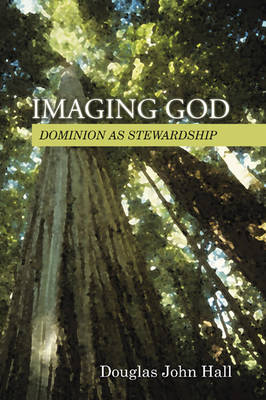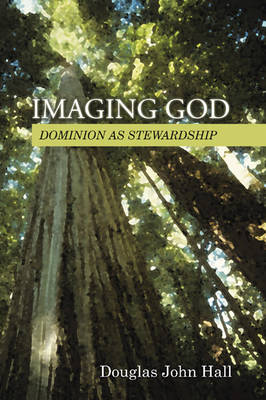
Bedankt voor het vertrouwen het afgelopen jaar! Om jou te bedanken bieden we GRATIS verzending (in België) aan op alles gedurende de hele maand januari.
- Afhalen na 1 uur in een winkel met voorraad
- In januari gratis thuislevering in België
- Ruim aanbod met 7 miljoen producten
Bedankt voor het vertrouwen het afgelopen jaar! Om jou te bedanken bieden we GRATIS verzending (in België) aan op alles gedurende de hele maand januari.
- Afhalen na 1 uur in een winkel met voorraad
- In januari gratis thuislevering in België
- Ruim aanbod met 7 miljoen producten
Zoeken
Omschrijving
The deterioration of our natural environment under the impact of a rampant technological society is one of the major crises of our time. For many analysts, a primary cause of this crisis is the influence on Western culture of the Judaeo-Christian concept of the human being as having dominion over the rest of creation. In this book, Douglas John Hall does not attempt to exonerate historical Christianity from that charge. But, he argues, confession alone is not enough. The crisis of nature forces us to rethink our whole understanding of the relation between humanity and nature - an understanding that is based on the concept that human beings are created in the image of God ('imago Dei'). Hall carefully examines the biblical, historical, and theological meanings of this term, which, more than any other biblical expression, became Christianity's symbolic way of designating the essence of the human. Hall argues that the image of God is not an endowment - it is not something that human beings have; rather, it is a quality that pertains to our relationship with God. We should think of 'imago' as a verb, not a noun, he says. The human vocation within the created order is to image the Creator. When this is applied in a consistent and serious way, the idea of human dominion over all of nature must be radically reinterpreted. Taking the Lordship of Jesus as an authentic model for understanding our human relation to the natural order means that dominion is expressed not as mastery but as service - sacrificial service of the others with and for whom one is responsible. Thus the concept of dominion as stewardship eschews any idea of ownership or superiority in relation to nature, yet assumes a special accountability for its welfare. A provocative and original work, Hall's book retains the biblical centrality of 'homo sapiens' while at the same time raising both nature and God to a new kind of prominence in the dialogue that is life.
Specificaties
Betrokkenen
- Auteur(s):
- Uitgeverij:
Inhoud
- Aantal bladzijden:
- 256
- Taal:
- Engels
- Reeks:
Eigenschappen
- Productcode (EAN):
- 9781592445806
- Verschijningsdatum:
- 14/03/2004
- Uitvoering:
- Paperback
- Formaat:
- Trade paperback (VS)
- Afmetingen:
- 141 mm x 217 mm
- Gewicht:
- 312 g

Alleen bij Standaard Boekhandel
+ 86 punten op je klantenkaart van Standaard Boekhandel
Beoordelingen
We publiceren alleen reviews die voldoen aan de voorwaarden voor reviews. Bekijk onze voorwaarden voor reviews.









